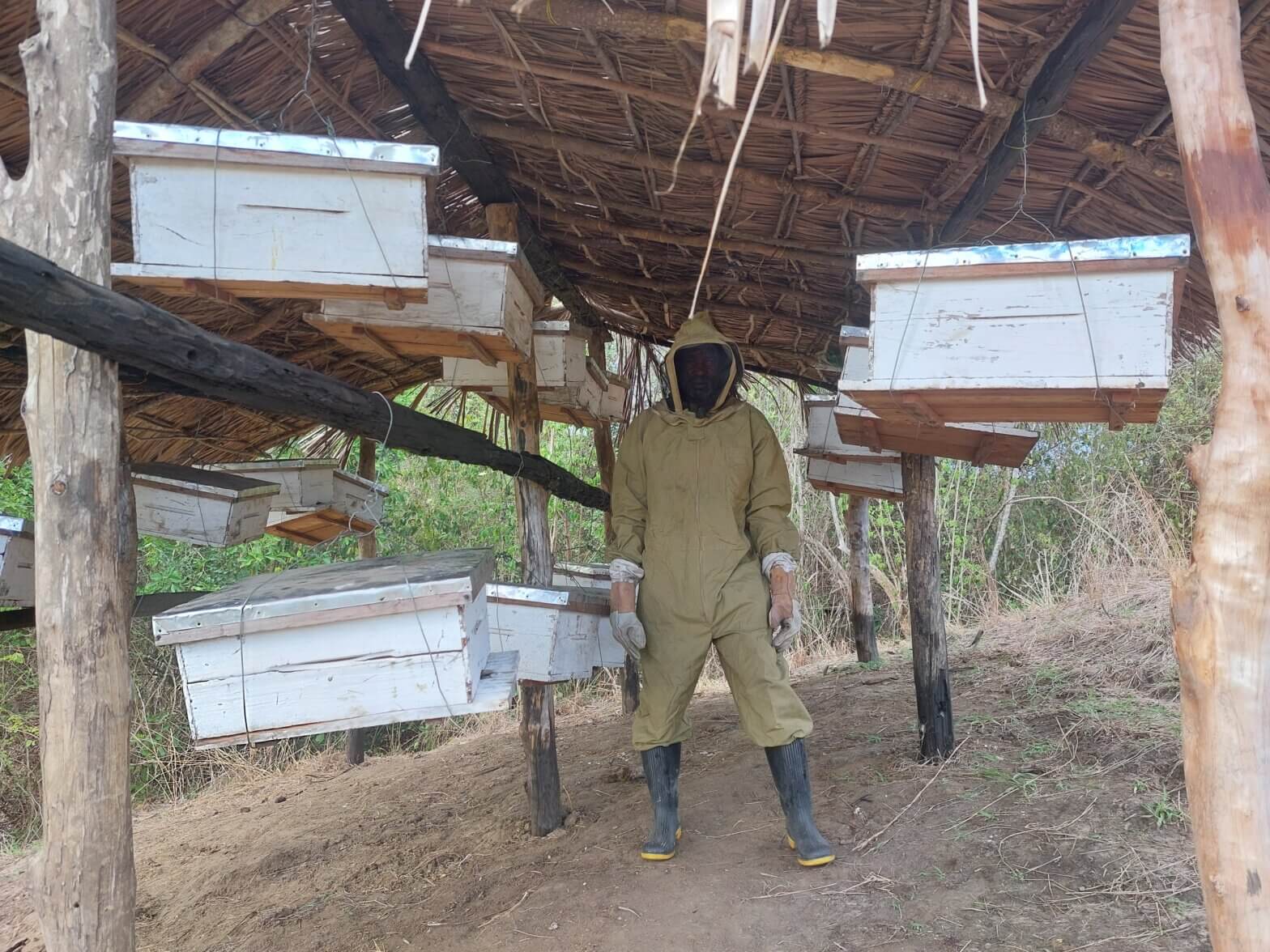Found 5 projects
KIBAHA BEEKEEPING TRAINING CENTER
The Kibaha Beekeeping Project in Tanzania, led by Ibrahim Hussein and supported by Weltweit and the Environmental Conservation Action, aims to harness the region’s rich biodiversity for sustainable economic growth. The project is establishing a Beekeeping Training Center funded by the BMZ Small Project Fund and the Ursula Merz Foundation, offering education and practical experience to new and experienced beekeepers. Through training, market access at trade expos, and environmental conservation efforts, the initiative seeks to increase local income, improve agricultural yields, and protect the Ruvu North Forest, promising a future of sustainable livelihoods and ecological resilience.
Matutuine Bamboo Park
60 hectares of land in the border area of the Maputo nature reserve have been severely damaged by the removal of sand for the construction of a road that connects Maputo city with the coastal town of Ponto do Ouro and runs through the Matutuine district. The devastated soil and the illegal extraction of further sand from the open areas prevent the colonisation of valuable flora and fauna.
As a pilot project, bamboo is to be planted for the ecological restoration of 12 hectares of degraded land. A mixed forest of endemic and exotic bamboo species with characteristics adapted to the micro-ecology of the landscape will help to restore soil stability and increase biodiversity. In the next step, the project envisages the creation of a park with leisure facilities within the bamboo forest, which will provide jobs and income for the local population
Bamboo Educational and Research centre in Mozambique
This project involves the construction of a research centre on a established 3-hectare bamboo forest, in Ponta do Ouro, Mozambican southern village, in parallel with the expansion of 30 hectares bamboo cultivation. By planting and using bamboo in a sustainable way, we can create jobs, provide decent and affordable housing, feed and save thousands of lives while protecting the environment and reduce the risks from devastating floods.


